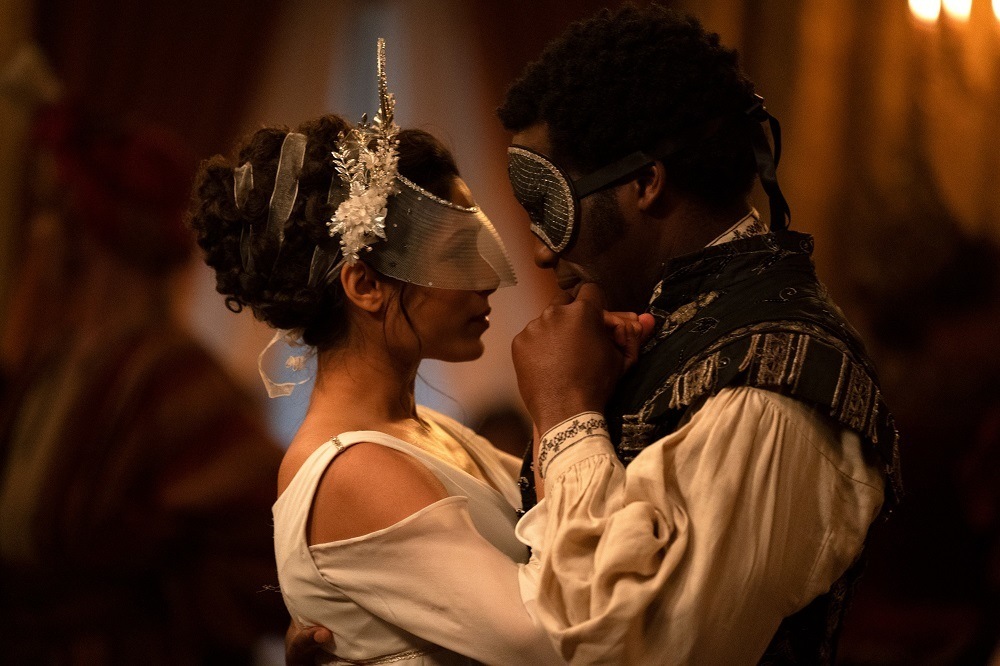Capsule reviews for July 1

Freida Pinto and Sope Dirisu star in MR. MALCOLM'S LIST. (Photo: Bleecker Street Media)
Accepted
With an intriguing perspective into the broken higher education system, this captivating documentary appropriately presents tough questions without providing easy answers. It dives into the controversy surrounding an unconventional Louisiana private school with a mostly low-income student body and a perfect college acceptance rate among its high school seniors. But that success came with a price when an investigation revealed allegations of abusive teaching practices and doctored transcripts. Rookie director Dan Chen digs beneath the headlines with personal stories that expose a broader issues related to college admissions, affirmative action, systemic inequality, and white-guilt narratives. Bolstered by fortunate timing, the film skillfully probes a relevant topic. (Not rated, 91 minutes).
Clara Sola
Familiar themes of sexual repression and spiritual awakening are given fresh cultural distinction in this atmospheric drama from Costa Rica, which infuses mythology with gritty authenticity. Clara (Wendy Chinchilla Araya) is a faith healer in a small village who lives with her devout mother and impressionable teenage niece. But an encounter with a visitor (Daniel Castaneda Rincon) prompts Clara to consider refocusing her sensory affinity for nature toward more primal instincts. Araya, a dancer by trade, leads a convincing ensemble of non-actors, while rookie director Nathalie Alvarez Mesen showcases a confident vision, dabbling in fantasy and mysticism while keeping the film’s emotions powerfully grounded. (Not rated, 106 minutes).
Mr. Malcolm’s List
Charming portrayals from a refreshingly multicultural cast boost this pleasant but predictable Regency-era romantic comedy that’s clearly inspired by the superior works of Jane Austen. Julia (Zawe Ashton) is an outspoken yet dim-witted bachelorette in 1818 London who desires the debonair aristocrat Mr. Malcolm (Sope Dirisu), except that she fails to meet his strict requirements for a bride. So Julia recruits her childhood friend (Freida Pinto) for a revenge scheme, never suspecting that it might backfire. This sumptuously mounted period piece features some breezy laughs while its derivative script lacks the nuance and surprise to generate a deeper rooting interest in the melodramatic maneuvering. (Rated PG, 117 minutes).
The Princess
Emphasizing spectacle over substance, this ultraviolent fairy tale strains to be edgy and subversive as it strings together some creativity choreographed fight sequences while decapitating narrative coherence and character depth. Our resilient heroine (Joey King) is locked inside a tower by the vengeful suitor (Dominic Cooper) she dumped. Using her expertise in martial arts and swordplay, the princess proceeds to dispatch random henchmen and oppressive patriarchal customs — all in a white dress — with equal aplomb. King (The Kissing Booth) commands the physical rigors of the role, although the film itself takes on a video-game mentality that becomes repetitive as it funnels toward an inevitable final showdown. (Rated R, 94 minutes).
Rubikon
Mildly provocative yet mostly ponderous, this Austrian science-fiction thriller leaves many of its more thematically ambitious ideas about environmental preservation and corporate greed lost in space. After a catastrophe on Earth leaves the planet shrouded in a toxic fog, astronauts aboard the titular space station must decide whether to return home and risk their lives or stay relatively safe in their claustrophobic confines. Conceptually it somewhat recalls George Clooney’s muddled 2020 epic The Midnight Sky and suffers from some of the same pitfalls, focusing so emphatically on psychology and moral dilemmas that it squanders any meaningful suspense about how the central conflict is resolved. (Not rated, 110 minutes).
Sniper: The White Raven
Current events lend an unintentional yet palpable relevance to this Ukrainian war drama, which infuses a familiar tale of true-life combat heroism with an underlying cultural specificity. Set in 2014, it follows a physics teacher (Pavlo Aldoshyn) in the Donbas region who suffers a tragedy at the hands of invading Russian troops. So he joins the army himself as an unconventional sniper determined to defend the future of his country. Rough around the edges, the gritty and evocative debut of director Marian Bushan benefits from Aldoshyn’s sturdy performance even as the screenplay relies too heavily on genre tropes. Still, it leaves a haunting and hopeful resonance. (Not rated, 111 minutes).